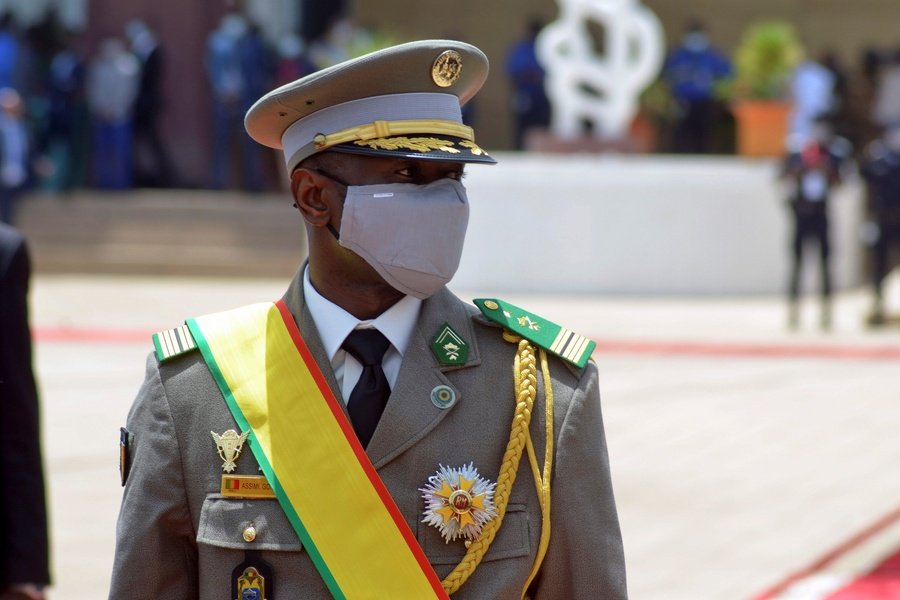Recent Flurry of Coups Caps Longstanding Push for Inclusion and Belonging in Africa
The recent wave of coups in West Africa reflects both a generational divide and a history of military involvement in African politics.
The recent spate of coups in West Africa has unsurprisingly drawn the attention of African leaders.
Following the failed takeover in Guinea-Bissau, the Economic Community of West African States (ECOWAS) summoned a one-day emergency meeting to discuss what its chairman, Ghana’s President Nana Akufo-Addo, described as a “dangerous trend” in the sub-region. Both ECOWAS and the African Union (AU) had condemned last month’s coup in Burkina Faso and, before that, last year’s successful military takeovers in Mali and Guinea.
The resurgence of coups was high on the agenda of AU leaders who met last weekend in Addis Ababa, the Ethiopian capital. Their condemnation of what a spokesperson described as a “wave of unconstitutional changes of government” was loud and unequivocal.
It goes without saying that the continent’s leaders are motivated by self-preservation. Most—especially in West and East Africa—face challenges not unlike the countries which have succumbed to military rule, including continued failure to contain a festering Islamist insurgency, restlessness within the armed forces, political corruption, and popular disaffection with the slow pace of economic reforms. This makes their fear of the coup contagion spreading to their respective national barracks understandable.
For their part, the coup leaders seem attuned to these larger structural forces, emphasizing in their varied coup-day announcements the idea of coming to rescue their individual countries.
Invoking late Ghanaian leader Jerry Rawlings, leader of the Guinean junta Mamady Doumbouya bragged without irony, that “if the people are crushed by their elites, it is up to the army to give the people their freedom;” and “the duty of a soldier is to save the country. We will no longer entrust politics to one man. We will entrust it to the people.” His Malian counterpart, Assimi Goita, had accused President Bah Ndaw and Prime Minister Moctar Ouane of “failing in their duties and seeking to sabotage the country’s transition.” In Burkina Faso, Paul-Henri Sandaogo Damiba, heading the Patriotic Movement for Safeguard and Restoration (MPSR), pegged the dismissal of the Roch Kabore-led civilian administration on the need to arrest the country’s worsening security situation and “unite the nation and effectively respond to the challenges it faces.”
Whether or not one finds their raison d’être plausible—a secondary question here—it is productive to see the respective leaders as members of the same generation, hence, subject to similar professional and personal pressures. Mamady Dombouya, Assimi Goita, and Paul-Henri Sandaogo Damiba are forty-one, thirty-nine, and forty-one respectively, which means that they were all teenagers when the first film in the blockbuster Matrix series was released in March 1999. Chad’s Mahamat Idriss Deby, who technically did not plan a coup but inherited the mantle of leadership under controversial circumstances following his father’s death in April 2021 is, at thirty-eight, the youngest.
For what it is worth, they all received their military training in the West, suggesting an exposure not only to similar strategic philosophies, but also ideas about politics and the political process. Both Deby and Damiba trained in France (Aix-on-Provence and Paris respectively), while Goita trained in France, Germany, and the United States, including a stint with the U.S. Army Special Forces where he apparently met and started a friendship with Doumbouya.
A generational perspective gains further credence when one considers the ages and time in office of the leaders displaced by what we could call the Matrix Generation. The older Deby, sixty-eight at the time of his death, had been in power since December 1990 when he overthrew Hissene Habre in a coup believed to have been backed by Libya’s Moammar Gaddafi. Guinea’s Conde was eighty-three and Mali’s Ibrahim Boubacar Keita died last month aged seventy-six. The recently deposed Kabore is sixty-four.
ECOWAS’ de facto leaders are effectively in their dotage: Cote d’Ivoire’s Alassane Ouattara is eighty; Nigeria’s Muhammadu Buhari is seventy-nine; Ghana’s Akufo-Addo is seventy-seven.
This is not the first time that a young generation of African military men have stormed into office on the back of assurances of a quick shot in the arm for the economy and an even quicker return to democracy. Uganda’s Yoweri Museveni was a young forty-two when he seized power in 1986. Equatorial Guinea’s Teodoro Obiang Nguema Mbasogo, seventy-nine this year, has been in power since 1979 when he took office aged forty-three. Rwanda’s Paul Kagame, sixty-four this year, was forty-three when he mounted the saddle in 2000.
The desire for change across the Matrix Generation is real. A 2019 survey of African military professionals by the Department of Defense’s Africa Center for Strategic Studies found that 46 percent viewed corruption as their greatest security challenge. First and foremost, corruption starves soldiers of the resources needed to carry out their constitutional duties. In the long run, it delegitimizes the armed forces by depriving them of their professional swagger.
Outside the barracks, young people facing increasingly constricted horizons agree with their military counterparts on corruption and political fossilization. Apparent public support for the recent coups owes mainly to this, and not to any unconditional approval of military rule.
While Doumbouya’s invocation of Jerry Rawlings shows a recognition of the historical moment, the experience of military rule in the region provides ample warrant for skepticism. In any event, it helps to see the coups in the wider spectrum of youth (hunger for) involvement in politics.
—-
Author: Ebenezer Obadare, Douglas Dillon Senior Fellow for Africa Studies at the CFR.
Featured Image: Colonel Assimi Goita, leader of two military coups and new Malian interim president, walks during his inauguration ceremony in Bamako, Mali on June 7, 2021. Amadou Keita/Reuters
This opinion was first published at the CFR on February 8, 2022, and it was republished by ICNA under the Creative Commons: Some rights reserved by the CFR.


